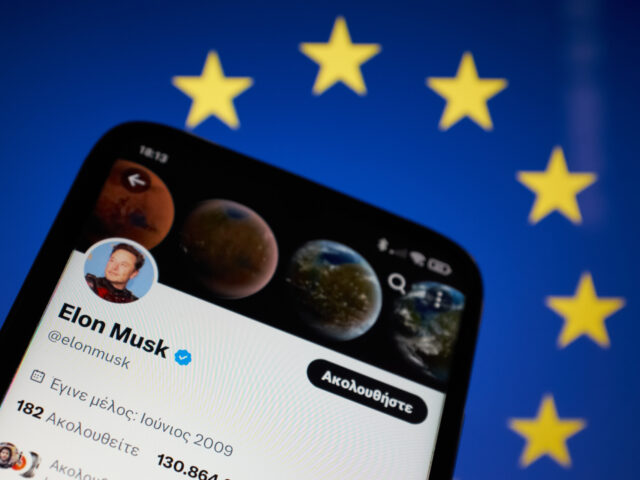Senior EU officials were furious on Friday after Twitter owner Elon Musk pulled the platform out of the bloc’s online censorship project.
Elon Musk has pulled Twitter out of the EU’s “Code of Practice”, a pro-censorship project aimed at countering so-called “disinformation” online, prompting fury from those in Brussels.
It comes after months of mixed messages from the billionaire, who had publicly stated that he wanted to support free speech on the platform while repeatedly insisting that he would support the European Union in its pro-censorship crusade.
According to a report by POLITICO, it appears that the Big Tech entrepreneur may be prioritising his freedom of speech committment over pleasing EU overlords, with the publication detailing rumours that Musk was pulling Twitter out of the voluntary anti-disinformation project.
This was later confirmed by EU Internal Market Commissar Thierry Breton, who wrote on Twitter that the platform had indeed left the project.
The Frenchman however went on to say that legal obligations for Musk’s company to censor content disliked by the European Union remains, echoing previous threats made by him that the platform would be thrown out of the bloc entirely if it does not submit to Brussels’ demands.
“You can run but you can’t hide,” he wrote. “Beyond voluntary commitments, fighting disinformation will be legal obligation under [Digital Services Act] as of August 25.”
“Our teams will be ready for enforcement,” he went on to threaten.
Musk’s decision to pull Twitter out of the EU’s voluntary censorship programme appears to indicate a worsening tension between the company and the transnational union.
Although the crusade against disinformation is voluntary for now, as mentioned by Breton, the bloc’s Digital Services Act will soon mandate that major social media companies preemptively censor certain content, statements, views and opinions deemed impermissable by Brussels.
Under the coming regulations, any platform that refuses to abide by the rules risks massive fines, as well as facing a potential ban from operating within the union.
However, Musk’s recent politiking in the United States may make things a little more difficult for European powers, with the tech billionaire recently cosying up to the Ron DeSantis Presidential campaign.
In turn, as a consequence of Breton and his EU collagues taking on Musk over free speech, the bloc could find itself having made a number of very influential enemies with access to the most powerful office in the world.

COMMENTS
Please let us know if you're having issues with commenting.